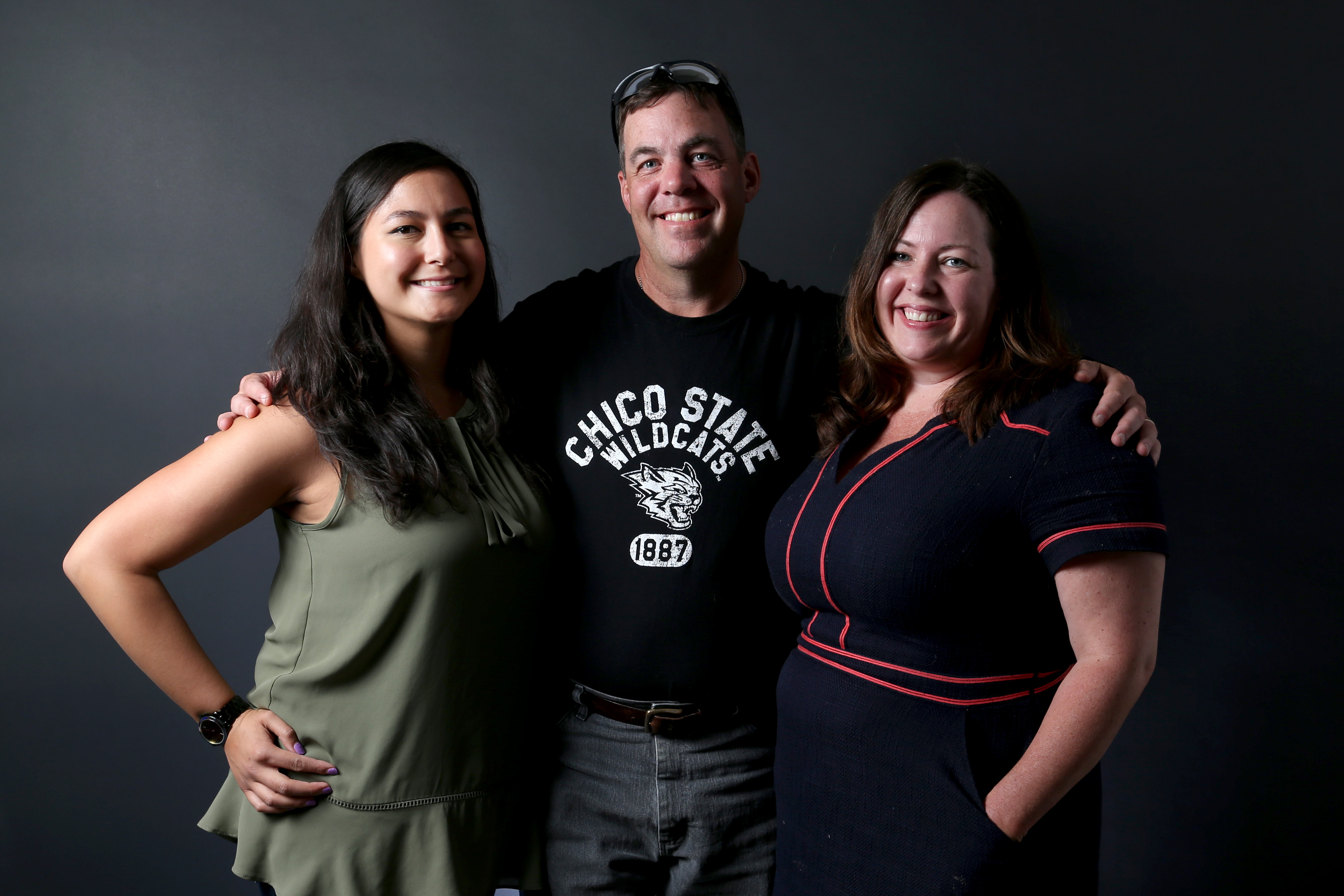Path to a Pulitzer

Malaika Fraley, Rick Hurd, Katrina Cameron won a Pulitzer Prize for journalism.
They will never forget December 2, 2016. The pain on people’s faces, the heart wrenching stories from victims and witnesses, the lasting trauma to the community.
“The world was watching from the beginning,” said Malaika Fraley, noting the events reminded her of when she was working on 9/11. “It was instantly an international story but no one was thinking that way. We were like everyone else in the community, just stunned it was happening.”
When an artist’s collective in Oakland known as the “Ghost Ship” caught fire during a late-night concert, many residents and visitors were trapped within the warehouse labyrinth and 36 people perished in the blaze. Media swooped in from around the globe, but no one knew the community like the staff at the East Bay Times, who
dropped everything to cover all angles of the devastation and its aftermath.
This spring, those who contributed to the team’s coverage were awarded a Pulitzer Prize, journalism’s highest honor. Among the recipients of the prize for breaking news reporting were Chico State graduates Rick Hurd (BA, Journalism, ’92), Fraley (BA, Journalism, Political Science, ’99) and Katrina Cameron (BA, Journalism, ’14)—all former reporters for The Orion student newspaper.
Fraley had been with the East Bay Times for about 15 years and worked as a member of the breaking news team. That night, up with her restless 10-month-old, she saw news notifications on her phone around 4 a.m. and jumped onto Google Hangouts, where she saw her editor was online.
In the hours that followed, she posted reports from the reporter on scene, rousted colleagues out of bed by phone, trolled social media as people desperately searched for loved ones, and added to the online story, which by day’s end was updated more than 100 times.
Fraley, who left the paper in June to freelance and stay home with her daughter, said each member of the East Bay Times’ small, close-knit staff “would return the [Pulitzer] prize to erase that tragedy. But we are proud of our work in giving a voice to the victims and holding public agencies accountable to ensure this doesn’t happen again.”
The newspaper’s parent news organization, the Bay Area News Group, contributed the $15,000 in award money to a fund for families of the fire victims.
“It was one of those moments where you see the magic of a newsroom, which becomes a well-oiled machine when you least expect it,” Cameron said of her team’s coverage.
“It was a test and testament to all of us because they don’t teach that in school, how to cover a 36-fatality fire,” she added.
A breaking news reporter who had been with East Bay Times for two years, she attended the first vigil the night after the fire. She sat quietly in a back row with her notebook, scribbling notes of heartbreak and pain.
“Some of the people were still wearing the clothes they wore to the party the night before,” she said. “Some said, ‘I’m looking for so-and-so’ or ‘I’m still waiting for this person,’ and every person they were waiting to hear about ended up passing away.”
Hurd worked 12-hour days for four days in a row. He watched firefighters meticulously comb the building for victims, talked to city officials, and double-checked facts about what led to the blaze. The horror will stick with him forever, he said, and reminds him of the importance of journalism.
“When you are called on in your profession to be great, and you are great, it carries with you for the rest of your life,” said Hurd, who has been with the East Bay Times for 22 years. “It was a great example of why we exist and what we do in our industry and I’m really proud to be part of something like that.”
Fraley and Cameron agree.
“Ever since I was a news-obsessed kid, my dream was to be a part of a Pulitzer Prize-winning team,” said Cameron, who is now a senior account associate at 10Fold Communications. She credits working for The Orion for preparing her for breaking news reporting.
“From stories like the big Greek suspension to having to interview the parents of students who died too young . . . I learned how to report compassionately because Chico has such a tight-knit community, so it felt like everyone was affected by tragedy,” Cameron said.
A full generation separates Hurd and Cameron, a fact not lost on Susan Wiesinger, chair of the Department of Journalism and Public Relations.
“That the Pulitzer-winning alumni graduated years apart really speaks to the consistent excellence of students drawn to Chico State’s journalism major,” she said. “Their success is a nice reflection on the program’s strengths but really says more about these journalists’ commitment to covering their communities better than anyone else.”
This story first appeared in Chico Statements.


